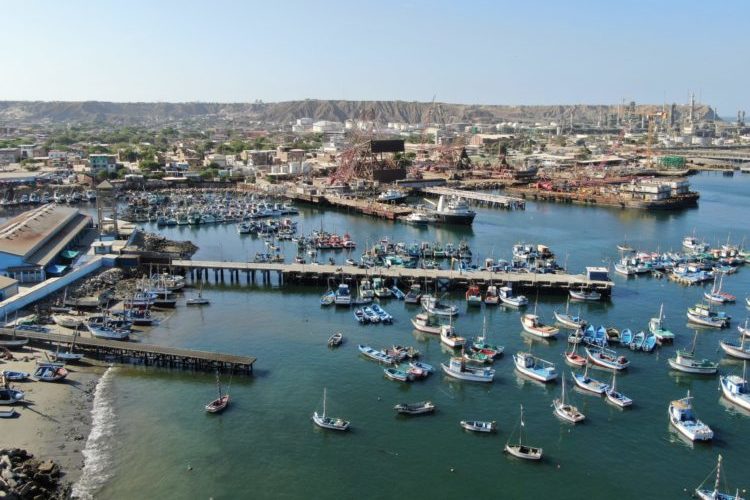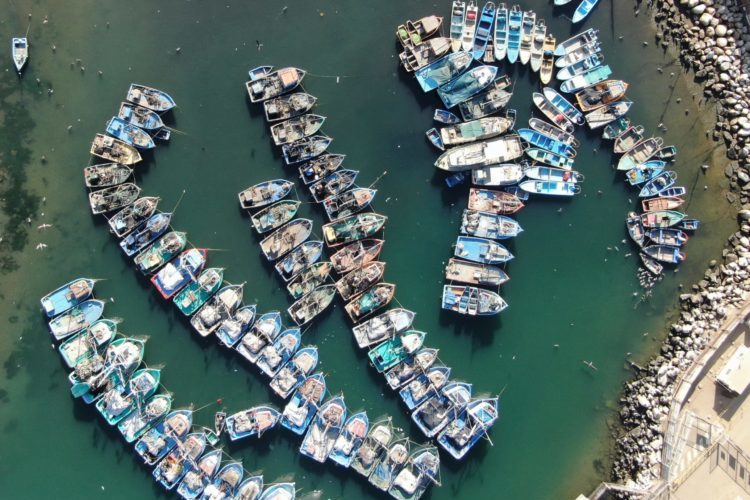
The University of St Andrews has been awarded a grant of nearly £300,00 to help protect the livelihoods of fishing communities in Peru hit by Covid-19.
Peru is one of the world's worst Covid-19 impacted countries. High levels of labour informality drive the need for people to work, undermining disease containment. This is particularly acute in the fishing and seafood supply sector where there are limited economic alternatives.
This new research will help address the urgent need to understand the impacts of Covid-19 on fishing dependent communities and to develop strategies to reactivate the seafood supply chain whilst minimising further Covid-19 infections.
The funding of £297,163 has been awarded from UK Research and Innovation (UKRI) through the UK Government's Global Challenges Research Fund (GCRF) and the Newton Fund.
The 18-month project will create a survey platform involving data collection, collation, automated analysis and a user-friendly data visualisation interface to provide decision support information to an Inter-Agency Consortium (IAC) led by Regional Government in the Piura region of Peru.
Online survey instruments will be developed and 12 Community Monitors trained to use them remotely to collect data from 12 key fishing communities. The data collected will include: health and welfare, fisheries related production and market information together with other local socio-economic indicators.
Gaps in social welfare, poor infrastructure and living conditions as well as high levels of informal employment exacerbate the impact of this disease in Peru. Artisanal fisheries are an important and overlooked activity which provides employment and basic nutrition for some of the poorest in rural areas. Thousands of jobs in the seafood supply chain are affected by the pandemic.

The project will involve researchers from the Scottish Oceans Institute (SOI) in the School of Biology and the School of Geography and Sustainable Development at the University of St Andrews; the Commonwealth Scientific and Industrial Research Organisation in Australia; the Food and Agriculture Organisation, Rome; the Agrarian National University; Redes Sostenibilidad Pesquera and an Inter-Agency Consortium (which includes representatives of all relevant Regional Government Departments, NGOs, industry and community stakeholders) as well as fishing organisations in Peru.
UK Research and Innovation works in partnership with universities, research organisations, businesses, charities and government to support research and innovation. Operating across the whole of the UK with a combined budget of more than £7 billion, UKRI brings together the seven research councils, Innovate UK and Research England.
Global Challenges Research Fund (GCRF) is a £1.5 billion fund supporting cutting-edge research and innovation that addresses the global issues faced by developing countries, and forms part of the UK Government's ODA commitment.
It harnesses the strengths of the UK's world-leading researchers enabling them to collaborate with experts in developing countries through equitable partnerships. The fund is managed by the UK Department for Business, Energy and Industrial Strategy (BEIS) and delivered through nine partners.
The Newton Fund builds research and innovation partnerships with 17 countries in Africa, Asia and Latin America to support economic development and social welfare, tackle global challenges and develop talent and careers. It has a total UK Government investment of £735 million up until 2021. The fund is managed by BEIS and delivered by UK and international partners.






